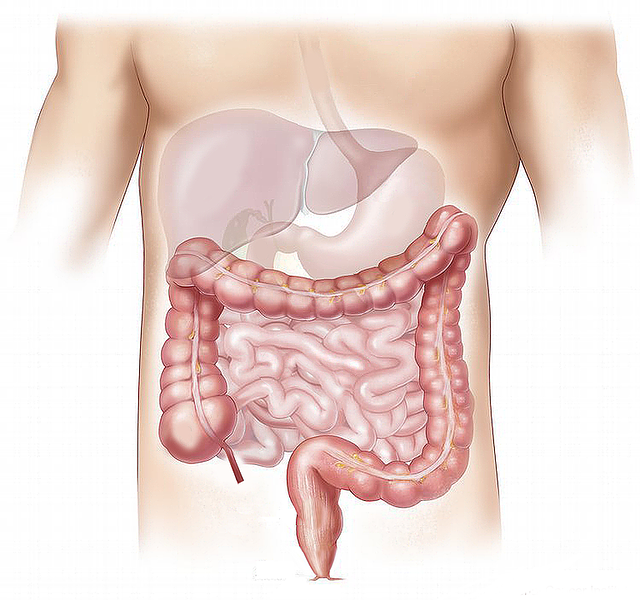It’s World Hepatitis Day on Friday (July 28) and the campaign this year focuses on the theme of eliminating the infectious disease that inflames the liver. According to WHO, hepatitis is caused by five different types of viruses and accounts for 1.35 million deaths globally per year.
The US Centers for Disease Control and Prevention (CDC) said that China has a “reservoir” of approximately 90 million persons chronically infected by Hepatitis B virus (HBV), or 30 percent of the chronic HBV infection worldwide. The CDC noted that China’s HBV prevention program “has been highly successful and increasingly effective,” though it needs to be sustained for the next decades, and that “augmented strategies” are required to eliminate HBV transmission.
In this edition of Doctor’s Corner, we talk to Dr. Lucia Guo of Distinct Healthcare Beijing to find out more about this infectious disease and the ways we can do to prevent its transmission.
Explain more what hepatitis is and what causes the infection.
Dr. Lucia Guo (LG): Hepatitis is a disease that happens when the liver, a big organ on the upper right side of the belly, gets inflamed. Hepatitis may be temporary (acute) or long term (chronic) depending on whether it lasts for less than or more than six months.
The most common cause worldwide is viruses. There are five main types of viral hepatitis: type A; type B, which is the most common type of hepatitis in China and caused by the hepatitis B virus; type C; type D; and type E.

Hepatitis virus types commonly affect the liver (triangle-like organ on the upper left side of this photo) and make it inflamed.
How prevalent is it in China and who is at most risk?
LG: It is estimated that there are nearly 100 million people who have hepatitis B virus (HBV) in China. There are a few ways to catch the HBV and all of them involve mixing bodily fluids with other people:
- Having sex with someone who was infected;
- Sharing drug needles with someone who was infected;
- Using infected needles for tattooing, acupuncture, or piercings;
- Sharing toothbrushes, razors, or other personal items with someone who was infected; or
- If your mother had hepatitis when she was pregnant with you, it’s also possible you got the infection from her. This is especially likely if she is from a country where hepatitis B is common. In the same way, if you have hepatitis B and are pregnant, you can pass the infection on to your baby.
What are some preventive measures that people can take against this disease?
LG: Primary prevention by vaccination to increase immunity remains the main focus in controlling HBV infection. The CDC recommends the routine vaccination of all children under the age of 19 with the hepatitis B vaccine. They also recommend it for adults who desire it or are at high risk.
In China, routine vaccination for hepatitis B starts with the first dose administered as a shot into the muscle before the newborn is discharged from the hospital. An additional two doses should be administered before the child is 18 months.
Also, you can reduce your chances of spreading hepatitis B by:
- Using a latex condom during sex;
- Not sharing razors, toothbrushes, or anything that might have blood on it; and
- Not sharing needles or syringes.
When should people test for hepatitis?
LG: We test for hepatitis B virus infection using HBsAg (Hepatitis B surface antigen), hepatitis B core antibody (anti-HBc), and hepatitis B surface antibody (anti-HBs) in certain groups of patients.
We screen the following groups of patients for HBV:
- Individuals born in areas with high or intermediate prevalence rates for HBV (such as China) including immigrants and adopted children;
- US-born persons not vaccinated as infants whose parents were born in regions with high HBV endemicity;
- Household and sexual contacts of HBsAg-positive persons;
- Persons who have ever injected drugs;
- Persons with multiple sexual partners or history of sexually transmitted disease;
- Men who have sex with men;
- Inmates of correctional facilities;
- Individuals with chronically elevated ALT or AST;
- Individuals infected with HCV or HIV;
- Patients undergoing renal dialysis;
- All pregnant women; and/or
- Persons needing immunosuppressive therapy;
Have you given expats treatment for this disease? What are their main concerns?
LG: Yes, I have taken care of expats with hepatitis, viral or from other causes. Just like everyone who gets viral hepatitis, expats have two main concerns. Is it curable? Is it contagious?
When we talk about acute hepatitis B among adults, most cases are totally curable, without any loose ends. However, chronic hepatitis B cannot be cured easily. Fortunately, even for the difficult cases, the disease situation can be well controlled and with no obvious health impairment.
Hepatitis B can be transmitted by body fluids, which are blood, mucus, and discharge. There are two ways to prevent contagion. First, patients should receive proper diagnoses and treatments. Second, persons who have close contact with patients should receive vaccination.

Hepatitis B virus
What are the consequences of getting hepatitis?
LG: After a person is first infected with hepatitis B, they can develop a flu-like illness that includes fever, abdominal pain, fatigue, decreased appetite, nausea, and in some cases yellowing of the skin and eyes (jaundice). In the most severe cases, liver failure can develop, which is characterized by jaundice, fluid accumulation (swelling in the legs or abdomen), and confusion. However, many patients do not develop symptoms, particularly if the infection occurs in infants and children. Not having symptoms does not necessarily mean that the infection is under control.
Chronic hepatitis B develops more commonly in people who are infected with the virus at an early age (often at birth). Most people with chronic hepatitis B have no symptoms until their liver disease is at a late stage. The most common early symptom is feeling tired. Everyone with chronic hepatitis B is at increased risk of developing complications, including liver scarring (called cirrhosis when the scarring is severe) and liver cancer.
The risk of developing complications (such as cirrhosis, liver failure, or liver cancer) depends on how rapidly the virus multiplies and how well your immune system controls the infection.
What are the forms of affordable treatment for patients?
LG: Specific treatment for acute hepatitis B is usually not needed since in about 95 percent of adults, the immune system controls the infection and gets rid of the virus within about six months.
In people who develop chronic hepatitis, an antiviral medication might be recommended to reduce or reverse liver damage and to prevent long-term complications of hepatitis B. However, not all people with hepatitis B need immediate treatment. If you do not need to start treatment immediately, you will be monitored over time to know when hepatitis becomes more active (at that point you may begin antiviral treatment).
If your doctor thinks you should be treated, there are two types of antiviral medications that can be used, nucleos(t)ide analogs (these are oral medications that you take daily) and interferon (an injectable medication). Once you start treatment, you will have regular blood tests to see how well the treatment is working and to detect side effects or drug resistance. Monitoring will continue after finishing treatment to determine if the infection has come back. Treatment should not be stopped without discussing this with your doctor because, in some cases, the virus can come back quickly, causing severe liver injury.
What is the future of prevention and treatment of hepatitis in China?
LG: Hepatitis remains a serious public health issue in China. The number of patients is still too high to be ignored. Hepatitis B, especial the chronic infection, lacks a miracle remedy. But thanks to public health policy and scientific progress, we are optimistic about prevention and treatment of hepatitis. Most newborns receive free vaccination against hepatitis B in China now. Such a strategy is very effective to reduce new cases. Several lately invented drugs on hepatitis B have shown promising potential to fight chronic infection. It is not a war between doctors and viruses. It is a war between the public and prejudice. Almost all hepatitis cases can be prevented, cured, and controlled you just need to ask for the best recommendations next time you visit your doctors office.
How can people help decrease hepatitis incidence?
Acute and chronic hepatitis B are contagious. Thus, people with hepatitis B should discuss measures to reduce the risk of infecting close contacts. This includes the following:
- Discuss the infection with any sexual partners and use a latex condom for every sexual encounter;
- Do not share razors, toothbrushes, or anything that has blood on it;
- Cover open sores and cuts with a bandage;
- Do not donate blood, body organs, other tissues, or sperm;
- Immediate family and household members should be tested for hepatitis B. Anyone who is at risk of hepatitis B infection should be vaccinated.
- Do not share any injection drug equipment (needles, syringes).
- Clean blood spills with a mixture of 1 part household bleach to 9 parts water.
- If a mother tests positive for hepatitis B surface antigen, certain steps can be taken to decrease the risk of transmitting the virus to the infant. So discuss the infection with your doctor during pregnancy.
Meanwhile, we have to know that hepatitis B cannot be spread by:
- Hugging or kissing;
- Sharing eating utensils or cups;
- Sneezing or coughing; or
- Breastfeeding.
About the doctor
 Lucia Guo
Lucia Guo
Internal Medicine Physician & Cardiologist, M.D., Peking Union Medical College
Guo specializes in hypertension, heart disease, lipid disorder, diabetes, heart failure, and obesity. She is also skilled in general medicine, such as fever, cough, rhinitis, stomachache, vomiting and diarrhea, chest pain, urinary infection, and headache and dizziness.
Distinct Healthcare Beijing CBD Medical Center
Room 201-203, Tower 1, Prosper Center, No.5 Guanghua Road, Chaoyang District
Consultation days: Mondays to Wednesdays and Fridays to Saturdays or on WeChat (scan the QR code).

Editor’s note: Part of the article is adapted from www.uptodate.com/contents/hepatitis-b-beyond-the-basics.
Photos: verywell.com; Elionas2, jrvalverde via Pixabay; courtesy of Distinct Healthcare Beijing
More stories by this author here.
Email: andypenafuerte@beijing-kids.com
Instagram: @coolkidandy

